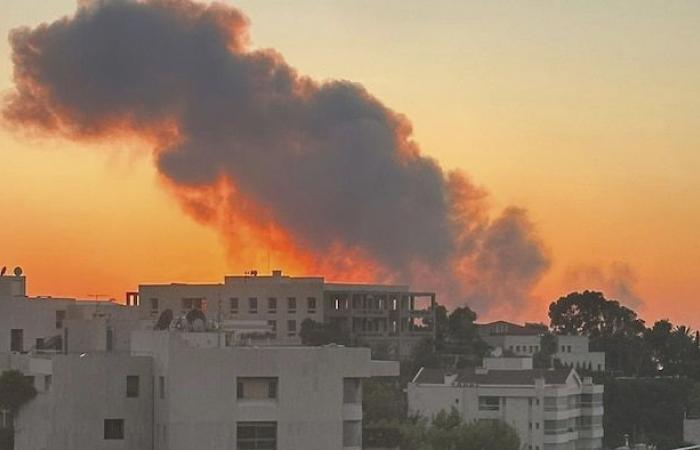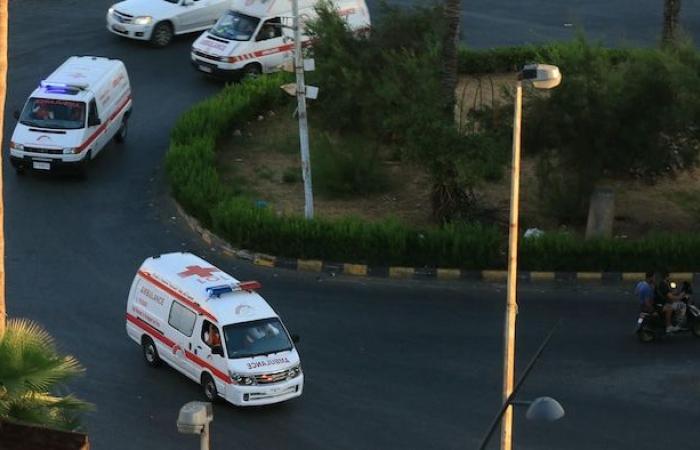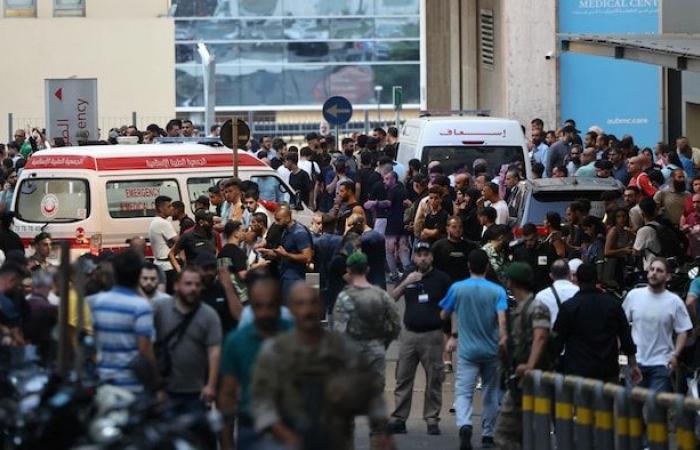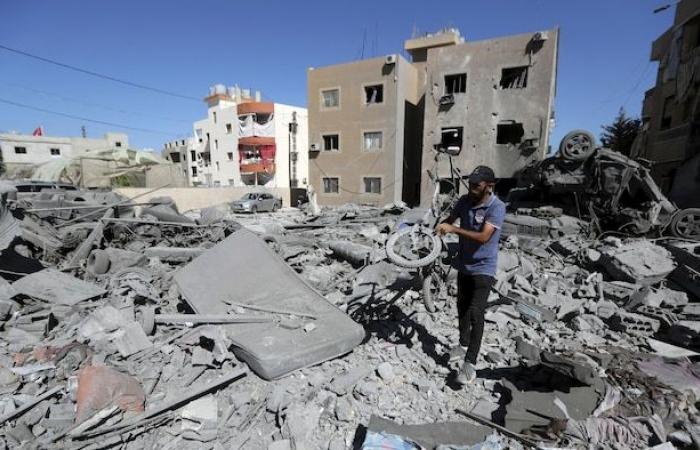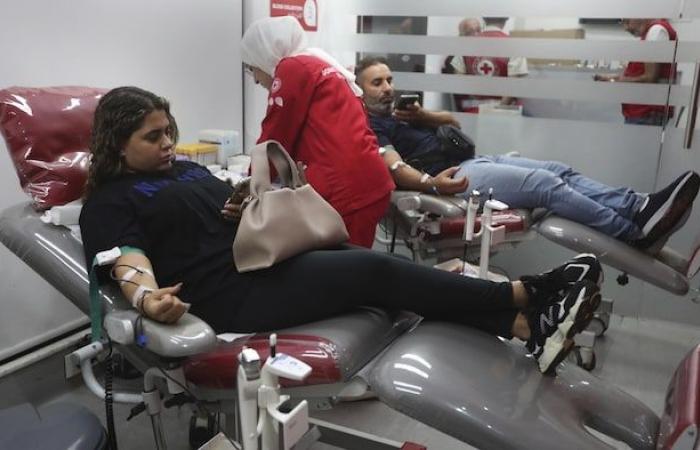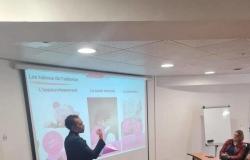Hostilities between Lebanese Hezbollah and Israel began about a year ago, in the wake of Hamas’ unprecedented attack on the Jewish state. The violence, which was once limited to the border between Lebanon and Israel, has however intensified considerably in recent days, giving way to escalation.
Last March, the medical manager of the government hospital in Saida, one of the largest cities in South Lebanon, told Radio-Canada that the country’s health establishments wouldn’t last two days
in the event of a full-scale war with Israel.
Six months later, while the war is in full swing between the two countries, Radio-Canada spoke with the Lebanese Minister of Health, Firass Abiad – an independent minister in the resigning Lebanese government – to take stock on the state of the health network in this country, plagued by a series of economic, social and political crises.
Open in full screen mode
Smoke rises Friday after Israeli airstrikes in Beirut.
Photo : AP
Question: What state is the health network in today?
Answer: Israel has been carrying out strikes against Lebanon since October, but these strikes were targeted at first. Two weeks ago, these strikes expanded, we saw it with the attack on the pagers, and then there was the black day of Monday [23 septembre]a bloody day during which we recorded around 600 deaths. Most of the victims were civilians. There were also nearly 1,800 injured that day. […]
Hospitals in the affected regions are working at full capacity to treat the injured. Obviously, we are trying to empty these hospitals and transfer the injured to other establishments that are in safer areas.
It is certain that due to the large number of victims, including civilians, humanitarian workers and rescuers, the health network is today under great pressure.
Open in full screen mode
Ambulances carrying victims of the pager explosion arrive outside the government hospital in Saida, southern Lebanon, September 17, 2024.
Photo : Getty Images / AFP/MAHMOUD ZAYYAT
Since October 8, Israeli bombings have killed more than 1,500 people in Lebanon, including a large number of Hezbollah fighters. In Israel, 25 people died from Hezbollah rocket fire, most of them soldiers.
Question: Can hospitals hold up if the war drags on, causing, for example, power cuts or fuel shortages?
Answer: Everything will depend on what happens next, whether the war will widen further, whether there will be a ground invasion, whether hospitals will be targeted or whether roads will be bombed.
It’s a large-scale war, but I think that one of the characteristics of the health sector in Lebanon is that it has already gone through several crises, from the civil war [de 1975 à 1990] to the pandemic, including the explosion at the port of Beirut [le 4 août 2020].
Our system was able to adapt to several difficult situations. I am not saying this to minimize the impact of these events on our health network, but there is no doubt that another country would not have been able to withstand all of this.
During the simultaneous explosion of the pagers, for example, there were 3,000 injured in the space of a few minutes and our network was able to treat them all.
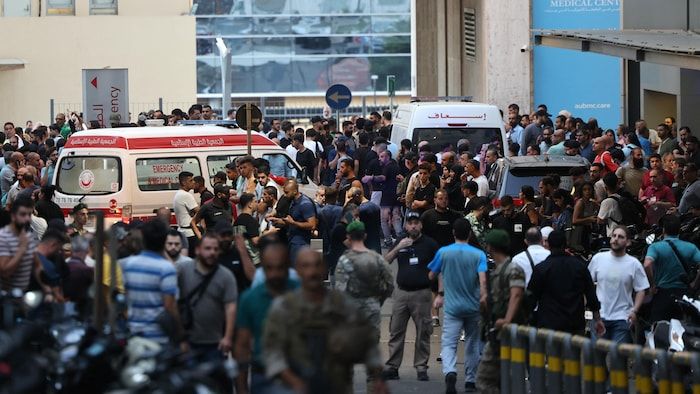
Open in full screen mode
Hospitals in Beirut were overwhelmed due to the number of injured after thousands of pagers, mainly belonging to Hezbollah members, exploded. However, these explosions caused several civilian casualties, given that they took place in public places.
Photo : Getty Images / ANWAR AMRO / AFP
On top of all this, we have been preparing for war since last October: we have trained healthcare personnel, we ensure coordination between rescuers and hospitals and we have organized exercises and scenarios in health establishments to be able to accommodate a large number of injured people.
All of this helps us to be resilient, but ultimately it is not enough to be resilient, the solution must be diplomatic
Several countries, including Canada, the United States, the United Kingdom and France, are calling for a truce, but unfortunately, [Israël] does not want a ceasefire and continues its war whose outcome is uncertain.
Question: According to the World Health Organization, Israel carried out 24 attacks on health services in Lebanon, resulting in the deaths of 27 healthcare workers and emergency workers. 55 others were injured. Do you fear a repeat of the Gaza scenario where hospitals were targeted?
Answer: Unfortunately, today we hear the same arguments used by Israel during its war in the Gaza Strip. Israel accuses Hezbollah of using civilians as human shields, when this is not true. There are Christian regions that have been hit and it is impossible that members of Hezbollah are hidden in those areas.
Faced with these accusations and the inaction of the international community, […] yes, we fear [qu’Israël] hits our hospitals like it did in Gaza
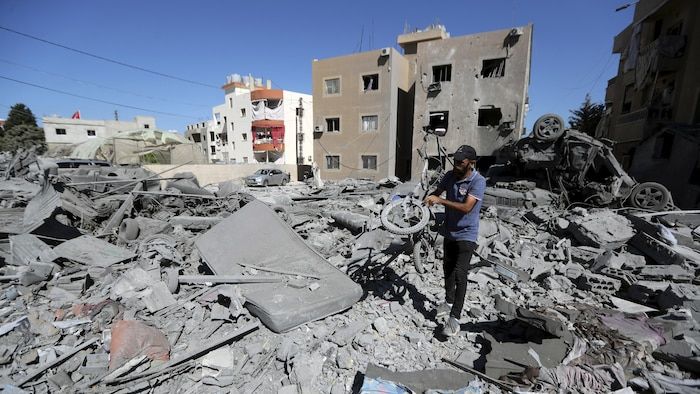
Open in full screen mode
A man carries a damaged bicycle to the scene of an Israeli bombing in Saksakiyeh, southern Lebanon.
Photo : Associated Press / Mohammed Zaatari
Question: Lebanon is facing a shortage of medical equipment and a shortage of healthcare workers due to the economic crisis. What is the picture of the situation currently?
Answer: Regarding medical equipment and medicines, we have enough stocks for four months.
Regarding the nursing staff, we have taken some initiatives. For example, we launched a campaign with the College of Nurses to encourage caregivers who are at home or who have been displaced, as well as students, to lend a hand to meet the needs in hospitals.
On the other hand, there are emergency medical teams that have come to support from the United States, Canada and other countries, as well as teams from Doctors Without Borders and the International Committee of the Red Cross . Generally, these specialized teams come with their own equipment and have some experience in this type of situation. All of this helps us meet our needs more quickly.
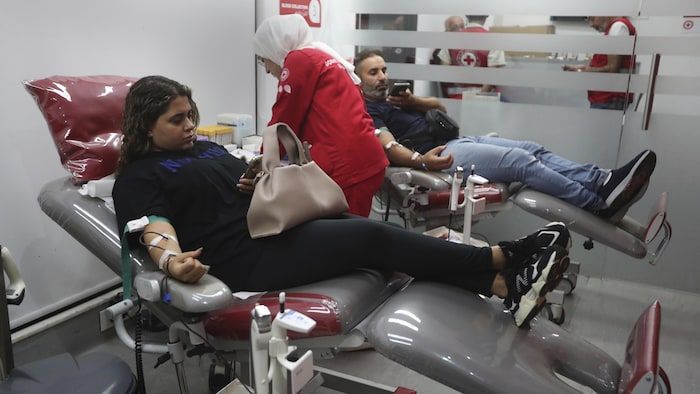
Open in full screen mode
Two people donate blood at a Red Cross clinic in the southern Lebanese port city of Sidon.
Photo : Associated Press / Mohammad Zaatari
Question: Lebanon has been without a president for two years, the government is a resigned cabinet, Parliament is divided… What will be the repercussions of this war on Lebanon, in your opinion?
Answer: Yes, the country is divided, that’s for sure. But in times of war, […] there is a certain surge of solidarity. We saw it when the pagers exploded, the entire health network mobilized. Injured people were transferred to hospitals in all Lebanese regions for treatment.
We do not want this war, we want a diplomatic solution. […] If Israel continues its massacres, there will be other groups that will get involved, groups in Iraq, Yemen or elsewhere, and the whole region will turn into a powder keg.
The interview has been translated from Arabic and responses have been edited for length and clarity.
An adaptation in Arabic (New window) of this interview is available on the website of RCI (New window).

